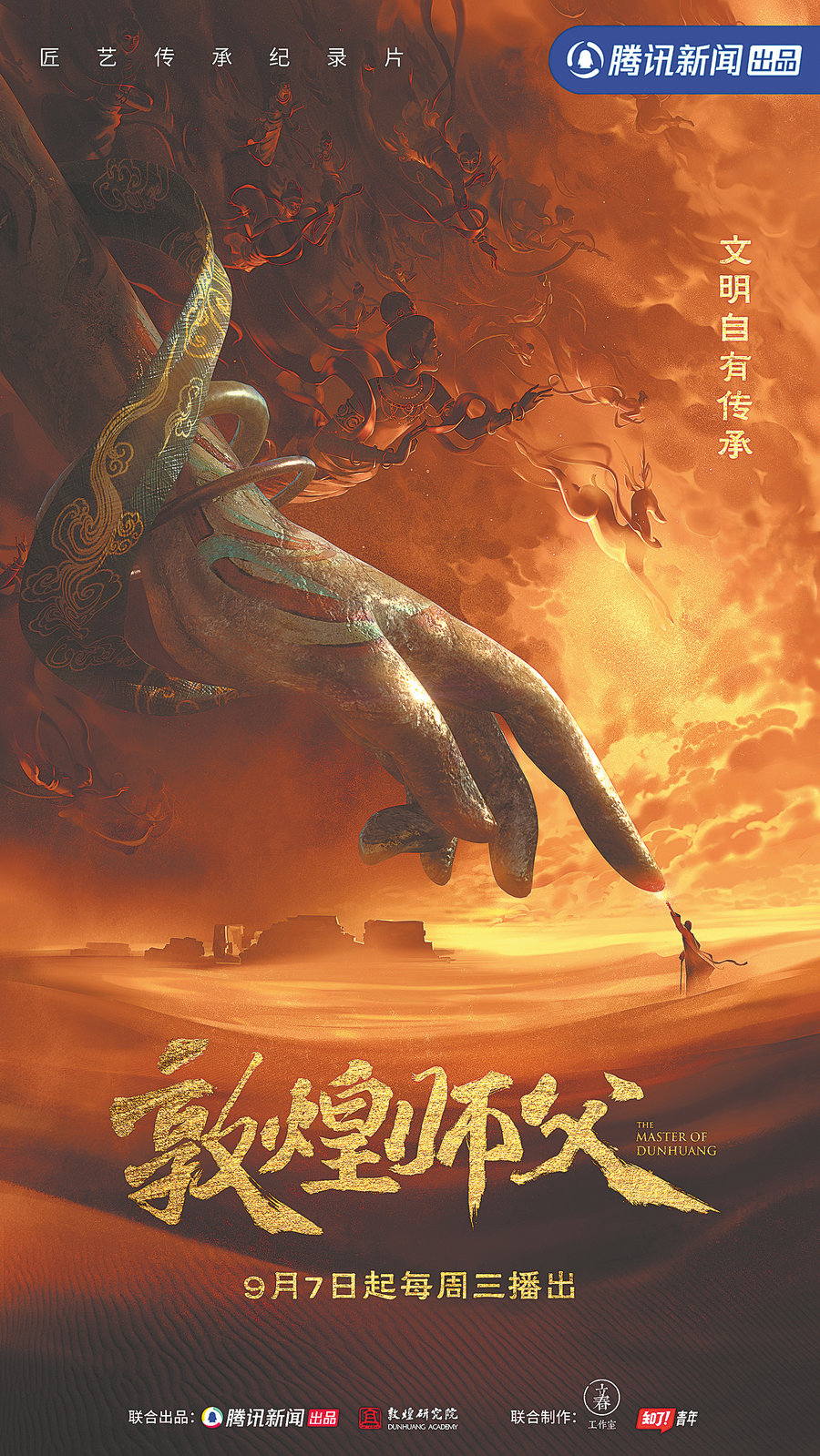

The documentary crew was soon forced to employ more direct means of engagement with the experts, such as volunteering to assist in the archaeological work by sweeping soil, or moving stones in excavation pits. Through dining and sharing late-night snacks together, the crew managed to get more acquainted with the researchers.
"Due to a shortage of staff, most researchers have to work until very late. Sometimes they were only available around midnight, after busy days attending meetings and writing reports, so we conducted most of the interviews at night," recalls Li.
By delving deeper into the project, the director feels more respect for those who are dedicated to the preservation, restoration and research of the relics at Dunhuang, an area with a total of 45,000 square meters of murals and more than 2,400 sculptures spread throughout in its 735 caves.
"Dunhuang is a place of magic. For those who once planned to work here temporarily, maybe for a few years before moving to bigger cities, many are totally fascinated by the site and have decided to stay for decades," adds Li.
Among them is Zhang Xiaogang, the director of the archaeology institute at Dunhuang Academy. Shown in the second episode as a caring mentor who guides Zhang Xiaoyang, he confides that he once endured similar struggles in his first few years.
After graduating with a master's degree from Wuhan University in 2002, the then 23-year-old Zhang Xiaogang once felt uncomfortable with the dry weather and harsh environment, as he strived to achieve academic recognition in around three years before returning to Wuhan in Central China's Hubei province.
However, his mind was changed by the caring guidance of Fan Jinshi and Peng Jinzhang, two influential scholars, who devoted their lives to the study of ancient Dunhuang culture.
Now, it's his turn to shoulder the responsibility of encouraging young talent to stick to their academic pursuit.
It is no mean feat, as one scene in the documentary shows that, in recent years, Dunhuang Academy has found it difficult to recruit young talent.
The heritage of the craftsmanship spirit is also highlighted in the documentary.
In the first episode, Li Bo, the 58-year-old son of top fresco art restorer Li Yunhe, leads his apprentice in a challenging experiment using his father's method: to entirely remove a layer of one of the frescoes, as the under layer is itself a fresco from an earlier dynasty.
The final tale depicts the internet era's impact on Dunhuang. Yu Tianxiu, head of the academy's institute of cultural relics digitalization, and his team employ advanced technologies, like artificial intelligence, to digitally record the details of the Mogao Caves.
For director Li Zhenya, Dunhuang is like an encyclopedia that draws scholars and researchers from a variety of fields to find their specialist subjects.
"Aside from Buddhist scriptures, many records reveal different aspects of ancient society — for instance, a student's homework and a landlord's contract have been found in the Cangjing (storing scriptures) Cave," adds Li, revealing that he is currently in discussions about producing a second season of the documentary.